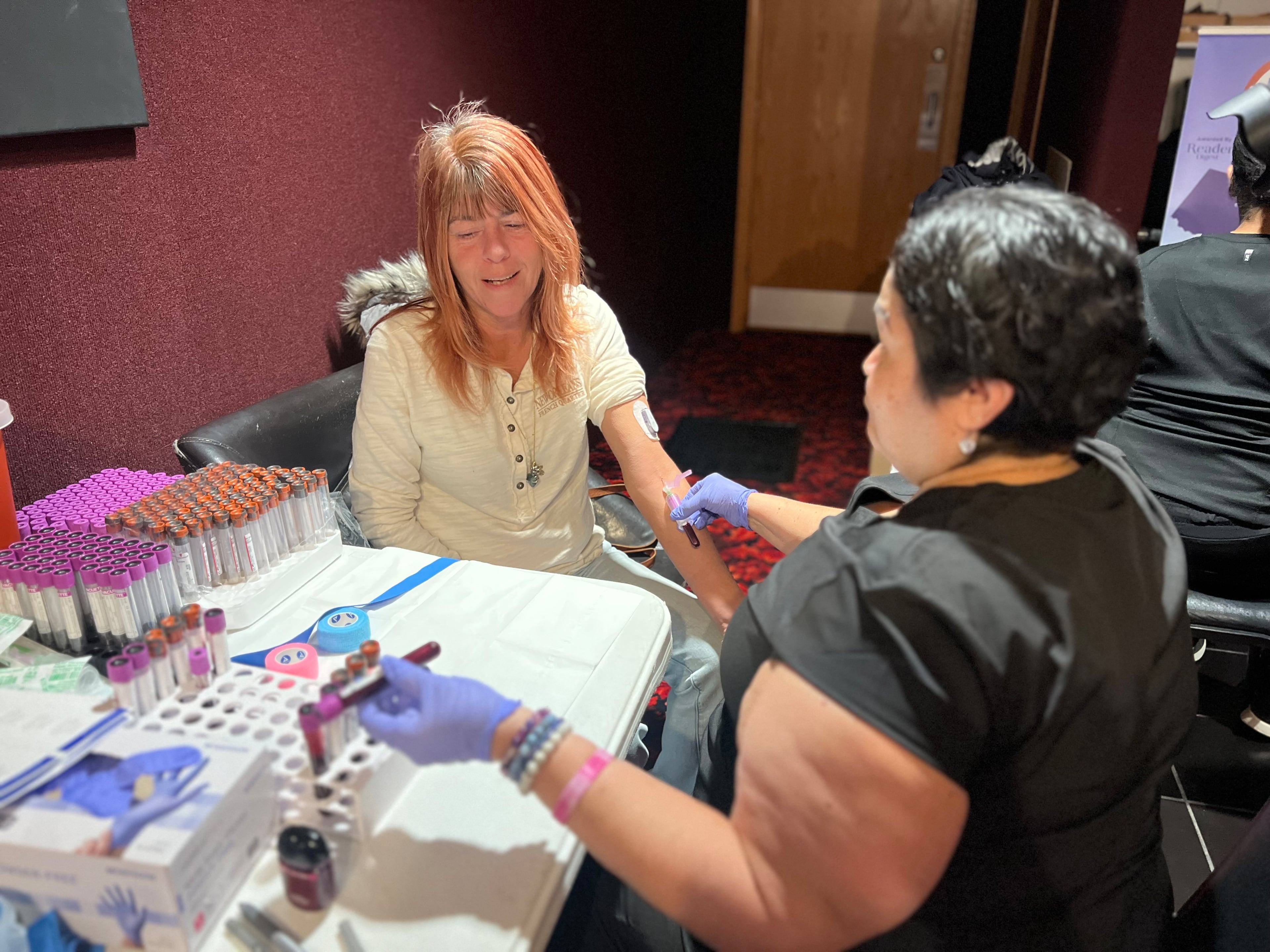Scenes from East Palestine: Town marks year since Norfolk Southern crash

EAST PALESTINE, Ohio — Dawn broke Saturday, chilly and quiet, on the anniversary of a day many in this blue collar town would rather forget.
Feb. 3, 2023, a Norfolk Southern train carrying toxic chemicals toppled over, triggering evacuations and an environmental disaster crews are still working to clean up. On the edge of the the village where the train crashed and caught fire a year ago, work continues to backfill the site and to keep stormwater from draining through the site where a mountain of contaminated dirt has been removed.
But officials shied away from holding a large official commemoration to mark the date. The reluctance is an acknowledgment that it’s not a time for unfettered celebration, and of the sense of unrest that remains.
“There were plans in the works to have something and then you know, the size of it and everything kind of was controversial,” said Chad Edwards, village manager.

Village officials instead held a press conference on Friday, the day before the anniversary, unveiling a new logo and motto, “Pride. Tradition. Progress.” They discussed the cleanup and efforts to rehab the town’s battered image.
News crews descended ahead of the anniversary, setting up cameras and lights along the street in the center of the village of 4,700 — something some residents said they’ve grown weary of.
Norfolk Southern CEO Alan Shaw, who visits often, arrived in East Palestine for the anniversary weekend, but not for public events Saturday. Instead, his schedule included a lunch with local Norfolk Southern employees and private meetings with residents.
As the Atlanta-based railroad continues to grapple with the cleanup, Shaw is also facing activist investors who have made a bid to oust him.
Norfolk Southern has tallied $1.1 billion in charges for the response to East Palestine, including the cleanup effort, more than $100 million in contributions to the community, and legal expenses and liabilities.

East Palestine Fire Chief Keith Drabick said the railroad deserves credit. He said Norfolk Southern has “stepped up and done exactly what they said they were going to do, whether it be remediation or helping to get the town back to where it was.”
“We’re holding them accountable just like everybody else is and just like they should be,” he said. “But quite honestly, they’re working well with us.”
Yet Saturday events organized by community groups reflected some of the lingering conflicts. Among them is continued anxiety about potential long-term health effects.
A nonprofit thrift store played host to mental heath support groups, activities for kids and a therapy dog named Cedric, who happily greeted families stopping by.

Chaney Nezbeth, who leads The Way Station, a faith-based group that runs the thrift shop, said residents have had financial problems and other challenges since the crash.
“We are seeing families that are breaking up because of this, because he wants to stay, she wants to go,” Nezbeth said. “We have absolutely seen families who have been dealing with addiction and doing well, and have fallen off the wagon. The trauma is just too much.”
But for the anniversary, “It has been a little touchy. What do we do? What don’t we do? Will we be blasted because we didn’t do anything? Will be blasted because we did do something?” Nezbeth said.

The activist group Unity Council for the East Palestine Train Derailment held an environmental film festival showing documentaries about other towns that faced disasters. There was a mobile phlebotomy lab to collect blood samples to screen for health issues that might be tied to exposure to chemicals from the wreck.

The Unity Council planned later Saturday to install a columnar sculpture topped with a carving of the head of a mule deer facing the derailment location to mark it as a site of “environmental injustice.” Also on the agenda: Environmental health speakers, including a recorded message from Erin Brockovich, and an evening event at a local winery intended “for residents to reflect, grieve and celebrate,” according to Unity Council Vice President Hilary Flint.
At East Palestine’s First Church of Christ, Pastor Bob Helbeck said he decided not to hold a special event, saying he feared it wouldn’t “pull everybody together.”
“We didn’t think it’d be helpful. You have people over here that are really appreciative. And if you say anything, that’s the wrong word. They’re upset,” he said. “Then you have all those people in between. If you pray and thank God for the blessings — we’ve had people who would be upset that we did that.”
Four families in his congregation left town after the derailment, though others have moved in. His church brought on a disaster coordinator after the derailment, taking donations to provide air purifiers to residents and other aid.
“Some people are extremely angry with the railroad, but I’d say the majority of people in town have gone on to back to living normal lives,” Helbeck said.
Sharp in his memory, Helbeck said, is a heated town hall held just weeks after the derailment that Shaw, the Norfolk Southern CEO, skipped while citing safety concerns. Angry residents concerned for their health shouted questions and demands.
Joy Mascher, who owns a flower shop, is among the residents still concerned for her health and distrustful of officials’ statements that the drinking water, air and soil are safe.
“A lot of people think it’s cleaned up and done and over with but it’s far from that,” Mascher said. “I still don’t believe EPA or the railroad. We want to know the truth and we want to know if it’s safe.”


